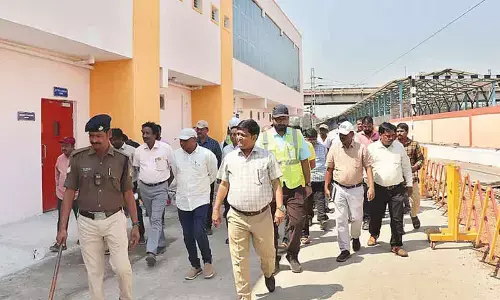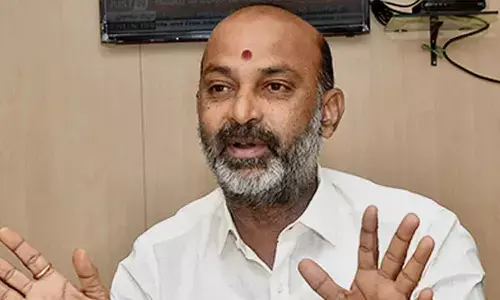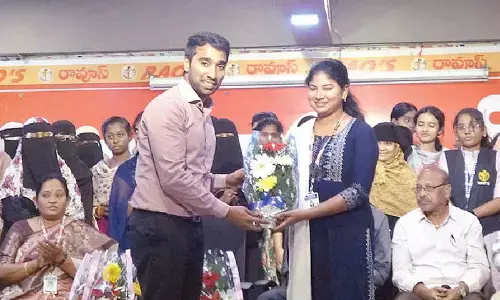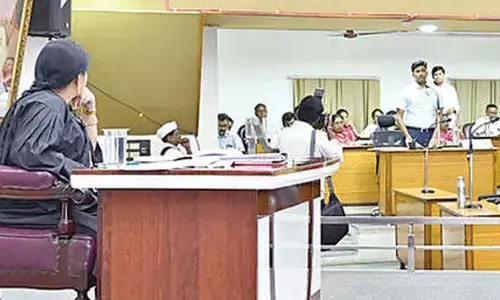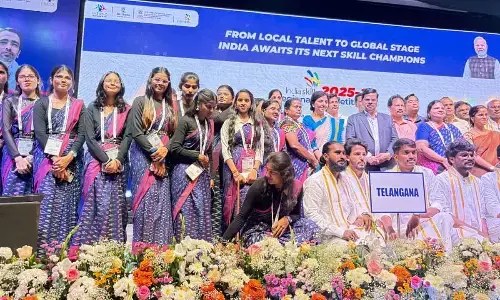All about working women’s financial freedom

All about working women’s financial freedom
Nearly half of the working women in Delhi (47 per cent) find it difficult to keep a regular track of their expenses, while more than 1/3rd (37 per cent) of working women are either not aware or have never been able to check their credit score.
Nearly half of the working women in Delhi (47 per cent) find it difficult to keep a regular track of their expenses, while more than 1/3rd (37 per cent) of working women are either not aware or have never been able to check their credit score.
These are a few of the findings of the 5th edition of the #WorkingStree survey report released by IndiaLends, an online marketplace for personal loans and credit cards.
The #WorkingStree report further reveals that women in Delhi have a unique approach towards financial independence and decision-making. The survey was conducted online in February 2023 and covered 10,000 plus working women in the 21-65 ge group residing in top metro, Tier-1 and Tier-2 cities, with about 10 per cent residing in Delhi-NCR.
The survey found that 2/3rd of working women in Delhi (67 per cent) actively contribute towards their household expenses, with nearly 1/3rd of these women (31 per cent), contributing over half of their income to their household. On a national level, more than 70 per cent of working women contribute to household expenses. Additionally, for working women, “financial freedom” has been the biggest motivation to work, followed by the desire to be valuable and have self-confidence. Nationally, women echoed the same reasons, followed by the need to support family needs.
The survey also revealed that 32 per cent of working women in Delhi find making financial decisions with regard to savings and investments a bit complex. This is in line with the national trend, where many women rely on the guidance of their father, brother, or husband when making financial decisions.
IndiaLends Founder and CEO Gaurav Chopra said, “Financial empowerment of women is not just a social responsibility, but also a key driver of economic growth. Our study results indicate that women in Delhi have a long way to go in achieving financial independence. While it is encouraging to see that nearly two-thirds of women in Delhi have checked their credit scores, there is still a long way to go in terms of regular expense tracking and independent investment decision-making. As a financial services company, IndiaLends is committed to providing women with the tools and knowledge they need to achieve their financial goals and aspirations. We believe that a financially independent woman is a force to be reckoned with, and we will continue to work towards creating a more equal and inclusive society for all.”
The survey also found that, at a national level, nearly half of working women were learning about personal finance from social media, about 30 per cent from news articles, and 20 per cent from workshops and seminars, followed by professional experts. Even though working women are making an effort to take a charge of their finances at present only 1/3rd of working women feel confident about making all their financial decisions.
The majority of IndiaLends’ #WorkingStree survey respondents were in the 25-34 age group, representing 47.7 per cent of the total sample, followed by 35-44 year-olds at 30.8 per cent. The youngest age group of 21-24 years represented 13.7 per cent of the sample, while those over 45 and above made up about 7.8 per cent. In terms of professions, salaried employees represented the largest group of respondents at 43.6 per cent, followed by self-employed individuals at 31.3 per cent. Homemakers represented 12.3 per cent of the sample, while professional individuals such as CAs and lawyers accounted for 4.4 per cent. When it came to marital status, the majority of respondents were married at 70.6 per cent, followed by singles at 16.4 per cent.


